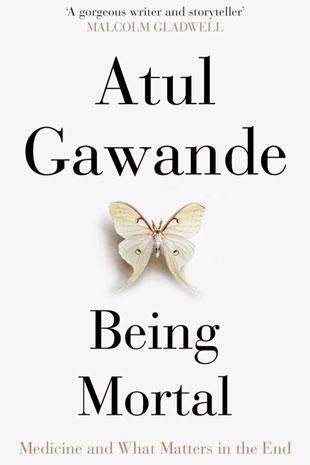
Every once in while you pick up a book that has been an embodiment of patience, waiting for its turn to be picked up and bathe you with its glow. A book that jolts you out from your cocoon that you have woven around yourself and threatens to rock your world in a way that you have no other alternative but to change the lens of your world view. A book that speaks to you in whispers but the impact on your mind re-vibrates like a gong being hit hard repeatedly. You may not be walking that road currently, but soon you would . This book, then will be your best companion and guide in manoeuvring the labyrinth called geriatric care. A book that challenges the notion of care for the elderly by placing autonomy over personal safety and stressing the importance of the elderly being the author of their own life till there is breath in their body.
A book that compels you to adopt a different prism while viewing the elderly. What is important when a person grows old? It is always the safety of the person that ensures he/ she lives a longer life? Is it the autonomy and independence that a person desperately wants to hold on to even while knowing that with age he/she would have to surrender both the freedom and the autonomy for his/her own sake? How does it feel for the population which has led a full life , being the master of their own destiny, to suddenly give up their dignity in the name of 'longevity' of life? More often than not, confined to a bed in a hospital where the quality of life is indicative solely by the smooth function of the apparatuses surrounding the bed.
Death and dying are two favourite preoccupation worldwide and how to best avert it, the most preferred pastime. The whole edifice of the field of medicine is built on this. The book raises fundamental questions about the issues that are perceived by the caregivers and the medical fraternity about what the elderly need and the issues that are felt by the senior citizens themselves. The two different views and the widening chasm between them is deftly handled by the author. The book opposes the premise of medicalization of old age and tries to look beyond the narrow approaches of medicines and surgeries to address the quality of life of the aged. Are the constant pumping of medication and 24 hours of client monitoring infentalizing their existence by depriving them of the right of self determination of their own life. Old age makes one life a treacherous walkathon in many ways. Is the fact that this stage of life is looked at more as a medical issue of broken bones and memory loss, makes it more treacherous for the person experiencing it is a question that the book delves into. Progress in the medical field is touted as the most important progress but it is not the panacea for old age related issues is what the book endeavours to outline. The author shreds the concept of “elderly living” as popularized by the US and gaining ground in the others parts of the world. Effects of robbing off one’s independence and freedom to live the life you want to live exacerbates the mental and emotional issues that an aged person faces is systematically addressed in an extremely engaging way through an extensive body of work which the author utilizes to prove his point.
What is scarier than the termination of life, is the prematurity of it. With age an acceptance towards embracing the inevitable is expected. However, what happens when a young person is confronted all of a sudden with the imminence is like a Tsunami threating to wipe all your dreams away. A 29 year old cancer patient, a 32 year old pregnant woman, both facing untimely demise of their aspirations. Both wanting to hold on to the life left but choosing very different paths. Former a series of hospital visits and multitudes of surgeries. Whereas, the latter being an acceptance and to make the available shelf life the best.
Go, grab a copy of "Being Mortal" and immerse yourself in the finest and the most insightful writing that you may have come across in recent times. This book is for everyone. For the aged because they can relate to it perfectly; for the non-aged, because one day they will travel that path or be a caregiver to one who would be on that path and most importantly the medical fraternity to understand that there is much more to life than fixing broken bones and extending the weeks and days of a person.










Add new comment